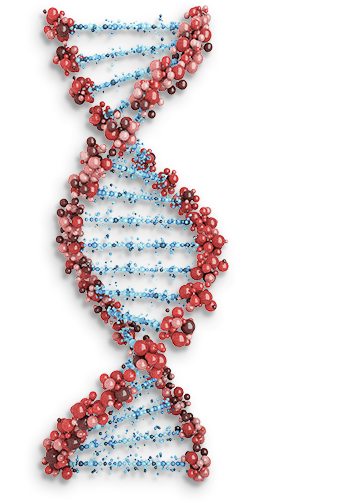Genetic Risk
If you or your partner has a family history of certain inherited health conditions, you might be eligible for genetic testing. Talk with your health care provider about your family history, your concerns and what testing is available.

If you or your partner has a family history of certain inherited health conditions, you might be eligible for genetic testing. Talk with your health care provider about your family history, your concerns and what testing is available.

When someone says that a medical condition ‘runs in the family’, they usually mean that one or more people in their family have the condition.
In some cases, those conditions can be the result of genes that parents pass on to their children. When this happens it’s called an inherited condition.
Genes give the instructions about how our bodies look and how our bodies work. Genes are packaged into structures in our cells called chromosomes. Chromosomes are found in each cell of our body.
Sometimes there are changes in the genes that are passed from a parent to their child. In other cases, there can be extra or missing chromosomes, or parts of chromosomes that are passed from a parent to a child. Sometimes healthy parents can have a gene or chromosome change that may cause health concerns for their children.
These changes may cause physical or cognitive health challenges.
Examples of inherited conditions include cystic fibrosis and muscular dystrophy.
Genetic counsellors take information about your family and medical history to learn what your genetic risk is.
Depending on the condition in your family, understanding genetic risk may tell you:
Not all physical and cognitive health challenges are inherited. Other factors can also play a role in some conditions and not in others. Diabetes and breast cancer are examples where environment plays a role in a person developing the condition.
Learn more about inherited conditions and birth defects.
Knowing your family history can give a lot of information that helps a genetic counsellor assess:
Your family history can give information about ancestry or heritage. This can be important because some conditions are more common in certain ethnic groups.
For example:
There are 2 types of genetic testing:
Genetic screening is usually done during the first or second trimester of pregnancy to give you information about the chances your baby will have certain genetic conditions, like Down syndrome (an extra copy of chromosome 21). Down syndrome is not usually inherited, but is a change in the number of chromosomes that occurs at conception. A screening test tells your health care provider if more testing needs to be done to make a diagnosis.
Genetic diagnosis gives a ‘yes’ or ‘no’ answer about certain conditions. It may be done before pregnancy. Genetic diagnosis can give you information about:
Depending on your needs, your health care provider may offer genetic testing for you or your partner.
Genetic testing of adults is usually done on a routine blood sample. Sometimes a saliva or buccal (cheek swab) sample can be used. Genetic testing of a pregnancy is usually done on a sample from the placenta or the amniotic fluid.
Before you go for testing, you’ll be offered genetic counselling. The counsellor will talk with you about the reasons to have or not have the test.
Not everyone at a higher risk of a condition chooses to get tested; it’s a personal decision. A genetic counsellor can give you information and support to help you decide if testing is something you want to do.
For more information on your genetic risk, talk with your health care provider.
Ready or Not contains a lot of information. So we created My To-Do List for you to use as a personal reminder, share with your partner, or bring to your next check-up.
Be sure to click “Add this to my To-Do List” anytime you see something you want to print, email, save, or share. Because we do not ask for any personal information, your list will only be saved for a week after your last added item.



